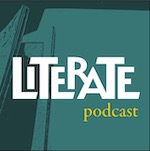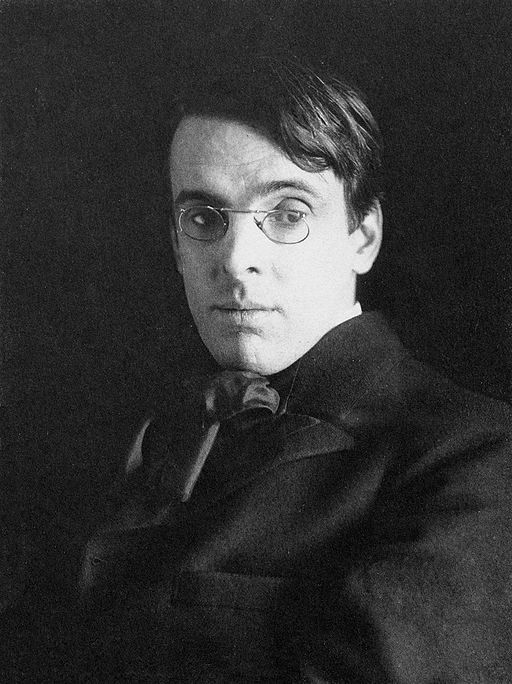Join us in experiencing W. B. Yeats’s striking images and evocative sounds in The Wild Swans at Coole. We compare the 1917 and 1919 editions of this collection of poems. And we revel in the mastery of fit between form and content throughout. This is a book that absolutely rewards close reading! For that reason, we dive into the details of how the Irish Nobel laureate handles prominent themes, such as aging and love, as well as his subtler, intensifying focus on politics and war. Since we discuss certain poems at length, they are included in the notes below: “The Wild Swans at Coole”, “An Irish Airman Foresees His Death”, “The Fisherman”, and “Tom O’Roughley”.
What a pleasure to also hear from two experts on Yeats. The episode begins with Bernard O’Donoghue reading of “An Irish Airman Foresees His Death”. He is a highly acclaimed poet, Emeritus Fellow at Wadham College, Oxford University, and Fellow of the Royal Society of Literature. Later, he provides an extended reflection on how this collection of poems fits within Yeats’s larger body of writings. We are also delighted to hear from Dr. Lauren Arrington, who is a Professor of English at Maynooth University and a director of the Yeats International Summer School: check it out! She highlights Yeats’s tricky – even devious – use of personae, and shows how a single word in his poems may brim with significance.
Selected Poems from The Wild Swans at Coole
The Wild Swans at Coole
The trees are in their autumn beauty,
The woodland paths are dry,
Under the October twilight the water
Mirrors a still sky;
Upon the brimming water among the stones
Are nine and fifty swans.
The nineteenth Autumn has come upon me
Since I first made my count;
I saw, before I had well finished,
All suddenly mount
And scatter wheeling in great broken rings
Upon their clamorous wings.
I have looked upon those brilliant creatures,
And now my heart is sore.
All’s changed since I, hearing at twilight,
The first time on this shore,
The bell-beat of their wings above my head,
Trod with a lighter tread.
Unwearied still, lover by lover,
They paddle in the cold,
Companionable streams or climb the air;
Their hearts have not grown old;
Passion or conquest, wander where they will,
Attend upon them still.
But now they drift on the still water
Mysterious, beautiful;
Among what rushes will they build,
By what lake’s edge or pool
Delight men’s eyes, when I awake some day
To find they have flown away?
An Irish Airman Foresees His Death
I know that I shall meet my fate
Somewhere among the clouds above;
Those that I fight I do not hate
Those that I guard I do not love;
My country is Kiltartan Cross,
My countrymen Kiltartan’s poor,
No likely end could bring them loss
Or leave them happier than before.
Nor law, nor duty bade me fight,
Nor public man, nor angry crowds,
A lonely impulse of delight
Drove to this tumult in the clouds;
I balanced all, brought all to mind,
The years to come seemed waste of breath,
A waste of breath the years behind
In balance with this life, this death.
The Fisherman
Although I can see him still,
The freckled man who goes
To a grey place on a hill
In grey Connemara clothes
At dawn to cast his flies,
It’s long since I began
To call up to the eyes
This wise and simple man.
All day I’d looked in the face
What I had hoped ‘twould be
To write for my own race
And the reality;
The living men that I hate,
The dead man that I loved,
The craven man in his seat,
The insolent unreproved,
And no knave brought to book
Who has won a drunken cheer,
The witty man and his joke
Aimed at the commonest ear,
The clever man who cries
The catch-cries of the clown,
The beating down of the wise
And great Art beaten down.
Maybe a twelvemonth since
Suddenly I began,
In scorn of this audience,
Imagining a man
And his sun-freckled face,
And grey Connemara cloth,
Climbing up to a place
Where stone is dark under froth,
And the down turn of his wrist
When the flies drop in the stream:
A man who does not exist,
A man who is but a dream;
And cried, ‘Before I am old
I shall have written him one
Poem maybe as cold
And passionate as the dawn.’
Tom O’Roughley
‘Though logic choppers rule the town,
And every man and maid and boy
Has marked a distant object down,
An aimless joy is a pure joy,’
Or so did Tom O’Roughley say
That saw the surges running by,
‘And wisdom is a butterfly
And not a gloomy bird of prey.
‘If little planned is little sinned
But little need the grave distress.
What’s dying but a second wind?
How but in zigzag wantonness
Could trumpeter Michael be so brave?’
Or something of that sort he said,
‘And if my dearest friend were dead
I’d dance a measure on his grave.’
This is an affiliate link for which we may receive a commission.
Sources
Howes, Marjorie, and John Kelly. The Cambridge Companion to W. B. Yeats. Cambridge University Press, 2006. Web.
Kato, Eileen. “W. B. Yeats and the Noh.” The Irish Review, no. 42, 2010, pp. 104-119. JSTOR, www.jstor.org/stable/20750132.
Nakoa, Masami, “‘The Wild Swans at Coole’ and Ireland of Its Time.” Journal of Irish Studies, vol. 28, 2013, pp. 34-43. JSTOR, https://www.jstor.org/stable/23609033.
Yeats, W. B. “Introduction.” Gitanjali: Song Offerings, by Rabindranath Tagore. Chiswick Press, 1912. Project Gutenberg, http://www.gutenberg.org/cache/epub/7164/pg7164-images.html.
Yeats, W. B. The Wild Swans at Coole, Other Verses and a Play in Verse. The Cuala Press, 1917. HathiTrust Digital Library, https://babel.hathitrust.org/cgi/pt?id=uc2.ark:/13960/t7sn06059&view=1up&seq=12.
Yeats, W. B. The Wild Swans at Coole. The Macmillan Company, 1919. Project Gutenberg, https://www.gutenberg.org/files/32491/32491-h/32491-h.htm.

